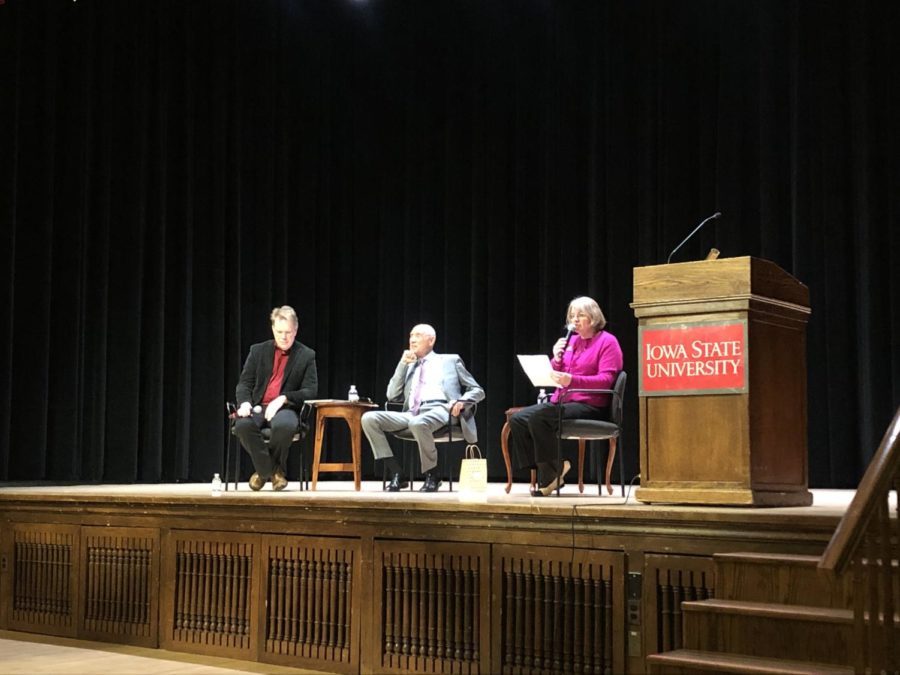Former congressman talks impeachment alongside Iowa State faculty
Katherine Kealey/ Iowa State Daily
Dirk Deam, associate teaching professor of political science, and former Rep. Ed Mezvinsky discuss impeachment at an event Nov. 14 in the Great Hall moderated by Karen Kedrowski, director of the Carrie Chapman Catt Center for Women and Politics.
November 14, 2019
A former congressman and an Iowa State faculty member discussed the impeachment process in an event at Iowa State late Thursday.
Dirk Deam, associate teaching professor of political science, and former Rep. Ed Mezvinsky, D-Iowa, spoke on the impeachment process in the Great Hall of the Memorial Union.
Impeachment appears in Article I of the Constitution.
It is a process that handles public corruption, Deam said. Living under a constitutional republic, the American people elect public officials to govern, and they govern under public trust.
“[Public trust] has to do with the idea that it is your responsibility […] to represent [the electorate in government],” Deam said. “You are supposed to represent all of the people that you are in charge of representing.”
Public trust applies to all positions of government, whether that is president of the United States or a senator, Deam said. Impeachment can be brought against officials that uses their office for the benefit of themselves, a faction, a party exclusively or a foreign nation. Any such action violates the public trust.
“The idea of corruption here is like the rotten apple in the barrel — if you don’t get it out of the barrel all the apples will be spoiled, so we have impeachment to […] protect the republic,” Deam said.
Mezvinsky said he never imagined the country would be faced with impeachment again. He said he believes the political climate has shifted since the impeachment proceedings against Richard Nixon.
“It is amazing is that it took 100 years for the next impeachment from Andrew Johnshon, which was in the mid-1800s, to Nixon,” Mezvinsky said. “But now it is almost as if every generation a president is subjected to impeachment.”
Mezvinsky said he believes even if Hillary Clinton had won the 2016 election Republicans would have tried to impeach her, and said he believes this comes from the change in political climate.
“This is polarized,” Mezvinsky said. “This is civil war. You watch those hearings and wonder if you are in reality.”
The founders feared the rule of law being determined by whatever party is in control, and this should be a concern to the American people, Deam said.
“Parties don’t make the rules,” Deam said. “The Constitution and the rule of law make the rules. So we have a serious problem, and we seem to have this back and forth that the law works one way for one party and a different way for another party, and that affects everybody in this room. This is a grave concern that you need to pay attention to.”
Daniel Hayes, junior in political science, said he attended the panel because he has Deam as an instructor and he has an interest in learning about the impeachment process.
“I thought [the discussion] was really informative and non-partisan, which is something I appreciate,” Hayes said. “I learned a lot about the constitutional terminologies and technicalities which is something I was curious about because it is applicable throughout every impeachment process.”

















